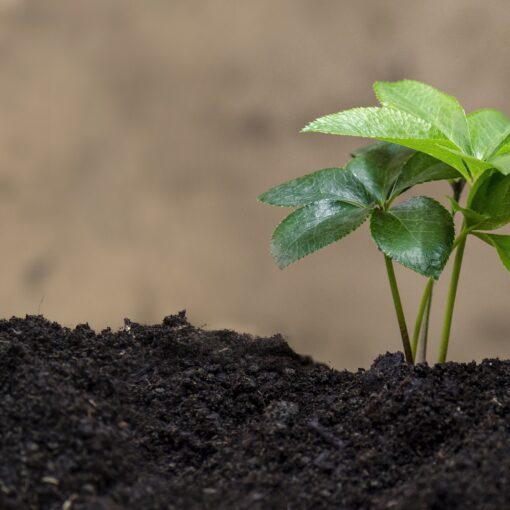For those ignoring the multiple global catastrophic risks now confronting the whole living Earth, this is a notice.
No one is removed from threats to life, we are all vulnerable to the impact of these profound risks: there is no escape.
Ask yourself, would you want to be in a spaceship heading for Planet Mars or a high security underground bunker, with the same psychopaths who had occasioned the destruction of 99.99% of life on Earth?
Catastrophic environmental and social changes have been on the horizon for thirty years, at least calculated from the United Nation’s first conference on the environment in 1992, at Rio de Janeiro, Brazil.
The first warnings were substantially earlier, Rachel Carson’s ‘Silent Spring’ published in 1962, is considered a landmark, while there are many others, including scientific studies dating back 120 years.
Today, nearly eight billion people live on Earth with a predicted 9-10 billion population by the year 2050.
All need food and water, clothing and housing, energy and transport.
Even while, humanity is steadily pushing to mass extinction, the estimated 4-10 million co-equal species that share this one living planet, Earth .
In one human lifetime, all life on our entire planet might become functionally extinct, as might we?
Simply, we are not separate from other species, we are one of them, causing a catastrophe to all of them.
Science has not even calculated the exact number of species that live on our living planet. Yet our current political-economic system enables the mass destruction of life on a scale that dwarfs even multiple World Wars.
Is that not the very definition of stupidity, immorality, murder and unconscious depravity?
Literally, what is being human if we do not value life?
How can any political or industry leader be allowed to continue office, without a specific and public commitment to protect all life, including the lives of each and every citizen?
How many trillions of life-forms are being exterminated, so that these ‘so-called’ leaders may continue to conduct and to protect an outdated model of wealth and privilege that allows them, and those that support them, to destroy ALL life on Earth?
Information abundance is a direct alternative to an outdated consumption-based economic system.
This is where constantly renewable energy, data, information, education and culture gain precedence over the economic traits fueled by greed, endless acquisition and over-consumption of Earth’s priceless non-renewable resources.
This old way of ‘thinking’ grounded in pre-twenty-first century theories of unscientific scarcity and elitism, are now killing us all.
Information abundance describes a dynamic world economy based on global renewable energy, secure food and material systems, new sciences of human potential and health, new materials-science that supplement and substitute for non-renewable resources and much more.
A massive abundance of information and data with direct and indirect economic and political value is generated by the use of our ‘relatively new,’ world-transforming, digital technologies.
A new civilization grounded in scientific information policed by world citizens themselves, dedicated to the protection of life, all life, or else what?
Today, many are threatened by a destabilised climate, over-use of non-renewable resources, deforestation, desertification, pollution, plastic everywhere including inside our bodies, melting Polar ice-caps and glaciers, rising seas, super-storms and much-much more.
As citizens in democratic states, so-called, we each require to address these issues for ourselves. That is the promise of democracy, self-responsibility in return for rights to protect and control our own lives.
We require the data, information and before these even, participatory democratic interaction, in order that each of us makes sense of the threats to life on Earth, for our own preservation.
In the face of catastrophic risks, citizens are now forced to move beyond existing and outdated systems of governance or two-party politics: in order to make new agreements and decisions within multiple, digitally connected, democratic decision making communities.
These communities will likely focus on preserving and protecting basic human and life rights, while sharing science and values that can change ‘everything in time,’ against outdated systems of governance that respect and protect the old politics based on power, wealth, greed, fear and violence.
Communication between people is the defining human activity and value of democracy.
Study of dialogue and citizen interaction is essential to support ‘citizen science’ community investigation and new ways of addressing multiform, potentially tipping point, existential risks.
And towards building the new information economy based on abundance of data, information and the measurable values of life.
Leaving the transformation of a new world information economy to existing political systems, is simply to slow-down change to suit a generation of people who are unable to or unwilling to change themselves or the systems from which they have benefited so greatly.
The new practice of communication ethics offers a grounding methodological standpoint and scientific toolkit with which every citizen may examine the values of a new world of information dedicated to protecting all life.
Values we each hold and that are always individually subjective and never contravened by others, are a starting point for conversations that can direct our civilization away from its current mad trajectory.
Each citizen is an individual ‘island of identity,’ who produces unique life values that are bridged only via communication and settled through the scientific evaluation of information and data.
This despite the sometimes difficult terrain of disagreement, which in an age of information threatens citizen-led democratic agreement and sustainable change with the chaos of fake news and propaganda.
More precisely, communication ethics makes sense of our individual values – grounded as they are in our singular lives – via our engagement with the lives of others.
Communication ethics is a great insight made by writers, artists and scientists after the Second World War (1939-45).
The conclusion drawn and legacy passed-on by these researchers, is that the entire architecture of ‘Western reason’ was and remains largely, grounded by extraordinarily faulty assumptions.
Both about the quality of collective judgement, in short democracy as a form of communication, and the role of each human-being in protecting their own and other lives, including the web-of-life that connects us all.
This 20th Century cataclysm, or ‘century of cataclysms’, occasioned by scholars a deep review of Western so-called ‘civilization’ and the questionable claims implicitly and explicitly made by its authorities and traditions.
Claims to being rational, or grounded in reason, or ‘science based on values’ appeared paper-thin ‘after the carnage’.
The now transdisciplinary field of communication ethics, defines the role of ‘self-learning’ and self-governing‘ citizens as central to the future of any sustainable world civilization.
Accordingly, as the climate and related global catastrophic risks (GCR) begin to radically alter our world, communication ethics offers a return to an older human-centric science of life, of moral wellbeing, of learning and interaction between people.
This self-learning discipline is a collective attempt to rebalance the excesses of our age and to address new opportunities to change with fairness grounded in shared life principles.
Thus to protect life in all its myriad forms and wonders.




